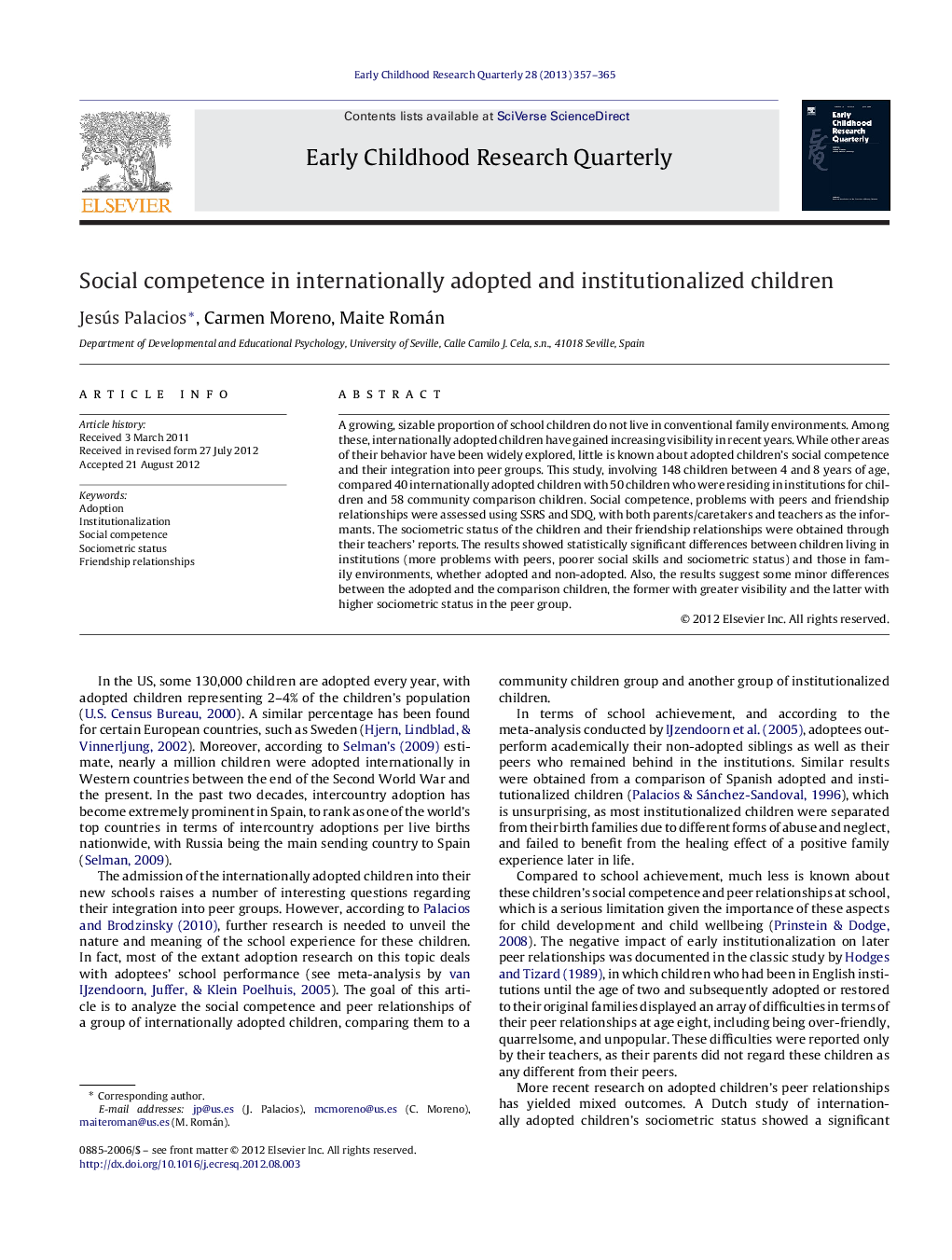| Article ID | Journal | Published Year | Pages | File Type |
|---|---|---|---|---|
| 354023 | Early Childhood Research Quarterly | 2013 | 9 Pages |
A growing, sizable proportion of school children do not live in conventional family environments. Among these, internationally adopted children have gained increasing visibility in recent years. While other areas of their behavior have been widely explored, little is known about adopted children's social competence and their integration into peer groups. This study, involving 148 children between 4 and 8 years of age, compared 40 internationally adopted children with 50 children who were residing in institutions for children and 58 community comparison children. Social competence, problems with peers and friendship relationships were assessed using SSRS and SDQ, with both parents/caretakers and teachers as the informants. The sociometric status of the children and their friendship relationships were obtained through their teachers’ reports. The results showed statistically significant differences between children living in institutions (more problems with peers, poorer social skills and sociometric status) and those in family environments, whether adopted and non-adopted. Also, the results suggest some minor differences between the adopted and the comparison children, the former with greater visibility and the latter with higher sociometric status in the peer group.
► Internationally adopted children's social competence and peer relationships are positive. ► Internationally adopted children have greater visibility than their peers in the classroom. ► Adoptive families seem to create a context for children's recovery following early adversity. ► Institutional rearing does not promote healthy social development. ► Family alternatives should take precedence over institutional ones.
